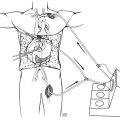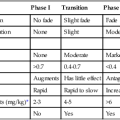
What do you do when feeling “off” becomes your normal? Maybe it starts with joint stiffness in the morning, low energy by lunchtime, or a stomach that never quite feels settled. You try adjusting your diet, then your sleep routine, maybe even your attitude. But the issue keeps lingering, becoming part of your daily rhythm.
That’s the experience for many people managing chronic conditions today. From autoimmune disorders to digestive imbalances to long-term fatigue, these aren’t quick-fix problems. They don’t go away after a prescription or a weekend of rest. Instead, they call for ongoing attention and long-term strategies that look at the whole picture.
More people are realizing that pills alone aren’t always enough. The rise of integrative and functional health shows a growing interest in treating the root cause, not just the symptoms. It’s not about abandoning traditional medicine, but expanding the conversation to include lifestyle, environment, stress, nutrition, and even emotional health.
In this blog, we will share how holistic support plays an important role in managing chronic health issues—and how it can complement your existing care to improve everyday quality of life.
Why People Are Looking Beyond the Prescription
Let’s be clear: medicine is essential. A person with diabetes needs insulin. Someone with heart disease needs medical monitoring. But what’s also true is that many people with chronic conditions still feel unwell even while technically doing everything “right.” Lab numbers can be in range, but the body still feels out of sync. That’s where holistic support steps in.
In recent years, digital wellness trends and the expansion of telehealth have made alternative resources more available. People who used to rely solely on doctor visits now explore mindfulness apps, herbal blends, and nutrient-focused routines from the comfort of their homes.
This is where an online apothecary can make a real difference. Instead of wandering through endless shelves at a big-box store or sifting through confusing ingredient labels, you can access curated wellness products with guidance. Platforms like Apothecary & Co. offer customized options such as supplements, medicinal herbs, and essential oils tailored to individual needs.
The best part? You don’t need to guess. Trusted online apothecaries often work alongside practitioners, offering vetted, professional-grade solutions. It’s wellness with context—not just hype. That kind of support is especially helpful for someone navigating long-term conditions, where a small change can make a big difference in how the body responds.
Small Tools That Add Up Over Time
Managing a chronic condition can feel like juggling glass balls. You might be focused on pain management one week, sleep quality the next, and food sensitivities after that. It’s a cycle of learning and adapting. Holistic care doesn’t offer one big solution—it offers layers of smaller ones.
For example, someone with chronic joint inflammation might use conventional medication to manage pain, but add turmeric capsules and guided stretching into their daily routine. These additions may not replace medication, but they can reduce flare-ups or boost mobility. Over time, these supportive tools help create a more stable baseline.
Sleep, digestion, and stress are three areas that often feed into chronic illness. Improving any one of them can help the rest fall into place. A simple magnesium supplement before bed, herbal bitters to support digestion, or a calming adaptogen to help the nervous system stay regulated—these aren’t wild, hard-to-find tricks. They’re small, targeted changes that support the body in ways traditional prescriptions often overlook.
Holistic care works best when it’s consistent. It’s not about jumping on trends. It’s about building a personal toolkit and learning what your body needs through careful attention.
Real Wellness Is More Than a Label
The word “wellness” gets tossed around so much that it sometimes feels empty. It appears on everything from bottled water to scented candles. But in chronic care, wellness isn’t about perfection or a morning smoothie with eleven ingredients. It’s about finding what helps you feel better and keeps your body functioning day after day.
That’s where holistic support shines. It focuses on personalization. Maybe your neighbor swears by yoga, but your body feels better after a brisk walk and a cup of ginger tea. Maybe someone you follow online promotes a high-protein diet, but your digestion improves when you add more fiber. Holistic care doesn’t lock you into a one-size-fits-all model. It invites you to test, observe, and adjust.
It also respects that healing is not just physical. Chronic health issues often come with emotional wear. Dealing with flare-ups, uncertainty, or feeling misunderstood by providers can take a toll. That’s why many holistic approaches include emotional and mental well-being as part of the treatment plan—things like guided breathing, journaling, or counseling support.
Wellness becomes more powerful when it connects your mental, physical, and emotional health into a full picture—not when it’s reduced to a trendy label or overpriced cleanse.
The Bigger Shift Happening Now
We’re living in a time when people are rethinking what health care means. The pandemic pushed many to take health into their own hands. Social media made once-niche remedies more visible. And rising medical costs are forcing people to explore new ways of caring for themselves between doctor visits.
This shift isn’t about rejecting traditional medicine. It’s about expanding the toolkit. It’s about realizing that health isn’t just about reacting to problems. It’s about building resilience.
Holistic support plays a huge role in that resilience. It helps you manage symptoms more gently, recover from setbacks more easily, and understand your body more clearly. It allows you to ask better questions and have more informed conversations with your providers.
And most importantly, it gives you agency. When you know what helps you feel better, and you have access to the right tools and support, you move from managing your health to actively shaping it.
No magic pills. No silver bullets. Just honest, consistent care for your whole self—inside and out. That’s the real power of holistic support in chronic health management.




